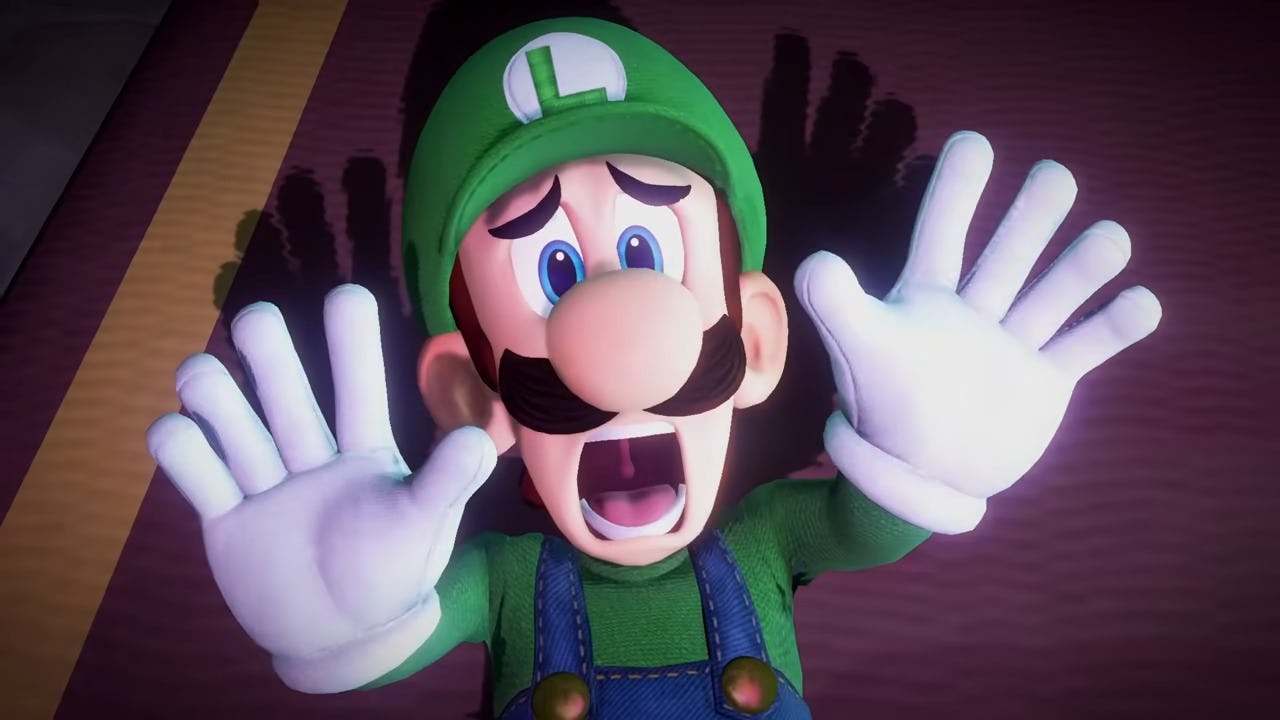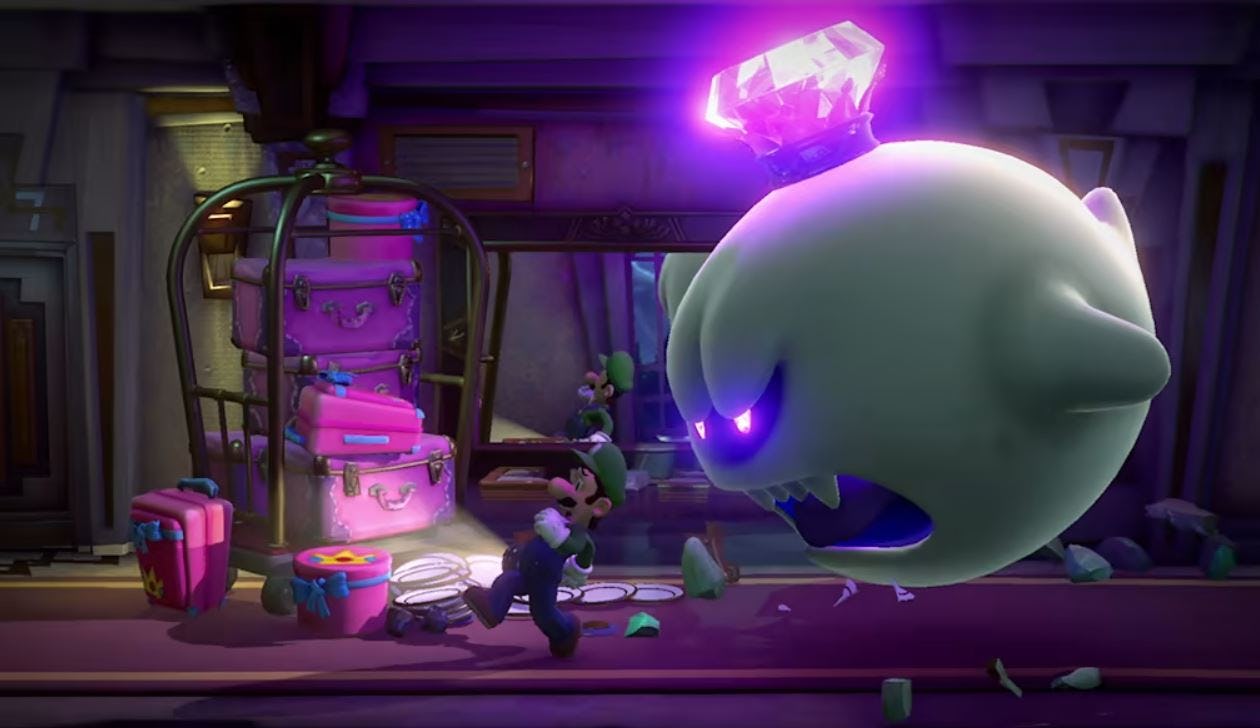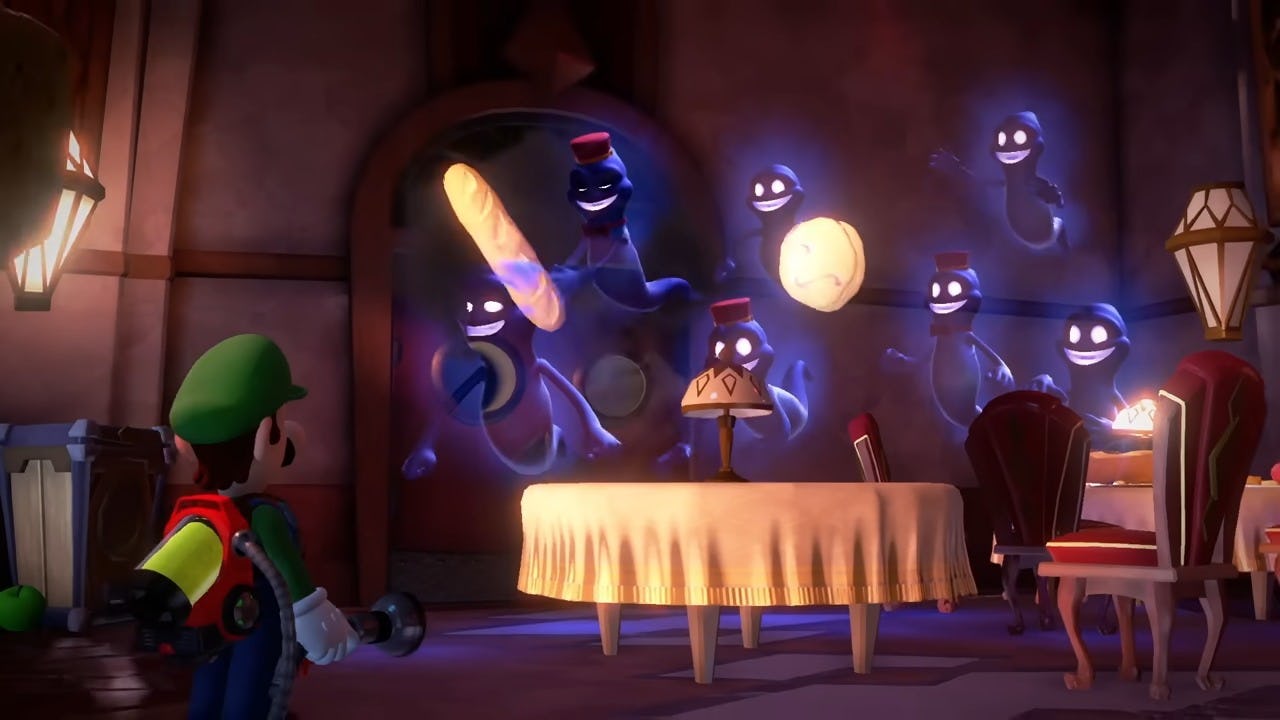
Ringling. Wright. Doobie. Famous brothers have been a part of our culture for as long as anyone can remember. There’s something about brothers that seems wholesome and trustworthy, we relish the idea of a cool dude having another cool dude that’s kinda like him. But ask anyone who’s actually been a brother and they’ll tell you it’s not all circus peanuts and yacht rock. There’s usually a bit of rivalry, and a hierarchy to who calls the shots. Someone always has to be player two. In the world of Nintendo, that player two is almost always Luigi, but every once in a while, the company lets the most not-as-famous-as-his-brother brother in all of gaming go on an adventure of his own.
Luigi’s Mansion 3 came out on Halloween 2019. It’s another spooktacular adventure for Luigi, often relegated to being known as “Mario’s brother.” This third installment in his franchise proves he’s more than a second fiddle, and that Nintendo fans are happy to embrace the cowardly plumber at the center of one of the most unique and innovative titles on the Switch.
Innovation has been a hallmark of the franchise since it first appeared on Gamecube in 2001. Originally conceived of as a project for the underwhelming N64 add-on the 64DD, Luigi’s Mansion elevated the other Mario brother to brand ambassador status by making his solo debut a launch title for the new console. (Yes, technically Mario Is Missing is Luigi’s debut, but no one considers a forgotten piece of educational software for ‘90s PCs to be part of the canon, OK?)
Because development on Luigi’s Mansion began while the Gamecube was still being designed, the team was able to make hardware requests and essentially build the ideal version of the console for their ideas. Gamecube’s real-time lighting and shadow effects were a direct result of the input supplied by the Luigi’s Mansion devs, which included Nintendo legends like Super Mario creator Shigeru Miyamoto and longtime Legend of Zelda director Takashi Tezuka. Tezuka’s influence is why the game has a Mario look but a Zelda feel that sends players room-by-room in what is essentially a multi-story dungeon.
Luigi’s Mansion 3 delivers some innovations of its own. Like the first game, it began its life as a title for a different console than the one it launched on, as the original plan was for it to be a Wii U release. Developed by Next Level Games, the same studio behind Luigi’s Mansion: Dark Moon, it’s the first title in the series to feature multiplayer support and online play. It also earned the distinction of being crowned the most technically impressive Switch game by Digital Foundry, which is bonkers because Breath of the Wild exists. What makes this game so good?

Luigi’s Mansion 3 is an inventive mix of puzzle-solving, exploration, and light horror-comedy. The story follows Luigi’s spooky adventures through the haunted Last Resort hotel where a simple vacation goes awry when his friends are captured by King Boo. Equipped with the updated Poltergust G-00 vacuum, he can suck up ghosts, solve puzzles, and uncover secrets hidden behind a plethora of subtle environmental clues. There are a lot of surprises scattered throughout the hotel’s 17 floors, as each has its own theme from a medieval castle to a Hollywood movie studio.
The game’s charm lies in its mechanics and level design. Luigi’s Poltergust isn’t just for ghost-catching — it’s a versatile tool used to vacuum up furniture, blow objects, and slam ghosts. The feel of the controls is crisp and responsive, a priority dictated by Miyamoto himself from the very beginning of the series. The addition of Gooigi, a gelatinous clone with unique abilities, opens up clever new puzzles that require the player to switch between Luigi and Gooigi to progress. Together, the two can slip through gates, walk across spikes, and tackle obstacles that would be otherwise impossible.
The vibe is very Ghostbusters in a world that is still waiting for a great Ghostbusters game. In the meantime, Luigi’s Mansion is happy to fill the void. Gamers are happy to let it, too. Luigi’s Mansion 3 has sold more than 12 million copies and has a comfortable 86 on Metacritic. Nintendo was so happy with the game it acquired Next Level Games. A sequel is undoubtedly in the works and, with a new Switch on the horizon, another launch title isn’t out of the question.

Luigi’s Mansion 3 captures the Halloween spirit more than any other game on Switch. Sure, there are lots of straight-up horror titles that deliver grisly scenes and genuine scares (looking at you, World of Horror) but Halloween is meant to be a little cheeky and fun. From its unique mechanics, detailed level design, and lovable-but-cowardly hero, Luigi’s Mansion 3 is a reminder that even a little brother can be a big success.







